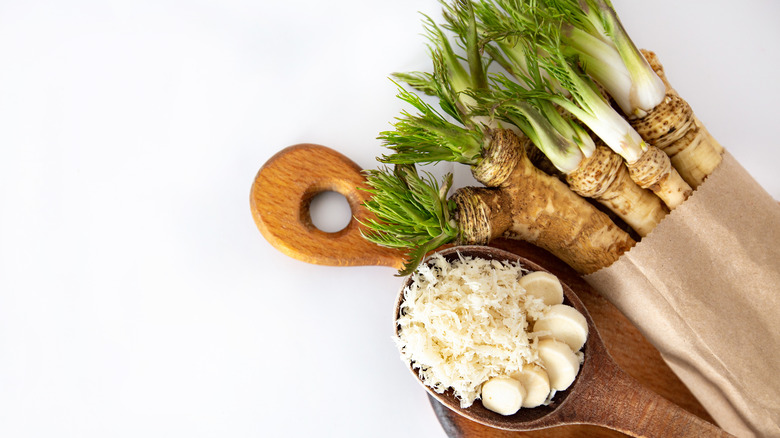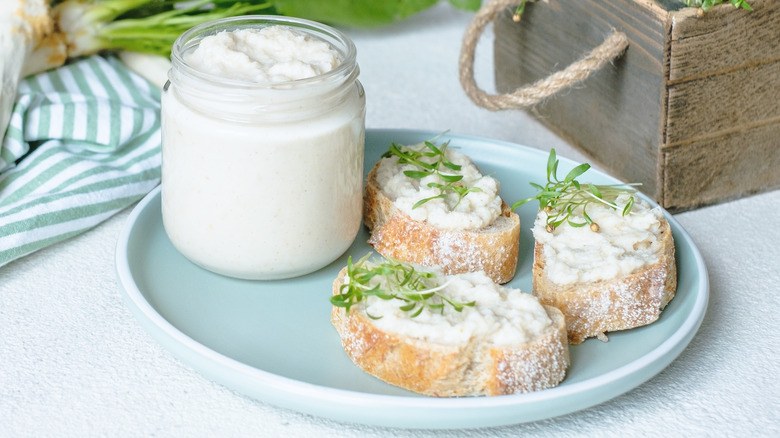Why Horseradish Is So Potent For Such A Short Time
A zesty zinger, horseradish is best known for its sinus-clearing abilities (per Taste of Home). With an intensity similar to wasabi or mustard, this root vegetable has a spicy strength that might just bring a tear to your eyes. But, regardless of how potent horseradish may feel, its effects are short-lived. If you're wondering why its heat is so fleeting, you're not alone. There's a reason why horseradish is only robust for a short period of time.
Horseradish is entirely edible, but its roots are what hold its characteristically pungent flavor. Harvested in the fall, The Old Farmer's Almanac explains that the horseradish is grated before being mixed with vinegar to stabilize the spice. Interestingly, Taste of Home explains that waiting several minutes before introducing vinegar will intensify the heat, whereas adding it immediately will lessen the burn. However, the heat from horseradish is unique from other spicy foods.
While both horseradish and chili spark the same sensory receptors in the nose and mouth, Pepper Scale explains that the heat from chili peppers comes from a compound called capsaicin. Whereas horseradish boasts an entirely different compound, which is also responsible for the only momentary fiery flavor.
Heat is fleeting due to its volatile compounds
Before being grated, horseradish doesn't have a particularly punchy aroma or flavor, according to Horseradish.org. It's only after the root's tissues have been damaged that a volatile compound called allyl isothiocyanate is released, causing a piquant profile. That said, the volatility of isothiocyanates is what makes horseradish taste peppery for just a short period of time.
Given that isothiocyanates don't linger on tastebuds the same way as capsaicin molecules do, The Takeout explains that the intensity of heat is, therefore, based on the amount of horseradish you consume. The bigger bite of horseradish will taste spicier, but the burning sensation will still subside within a matter of minutes or even seconds.
Likewise, Spiceography also notes that since allyl isothiocyanate is water-soluble, any extended exposure to air can cause the evaporation of volatile compounds, which can also reduce its pepperiness. Consequently, freshly-made horseradish should be kept in a tightly sealed container in the fridge to maintain quality — just don't expect it to taste as spicy as the day it was first made.

